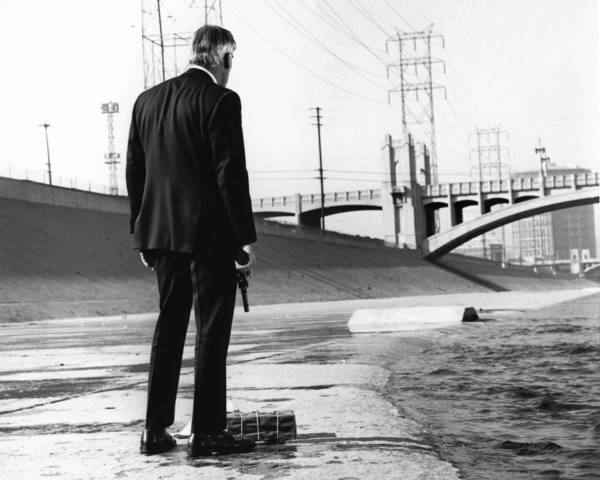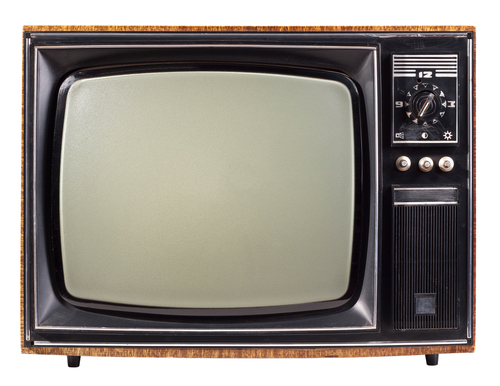|
Rediscovering Lee Marvin's gritty brilliance
Posted on: 01/31/13
The versatile Oscar-winner, who died at 63 in 1987, is the subject of a new biography, a film-series retrospective and a Turner Classic Movies marathon. Lee Marvin "is the guy who started it all in terms of modern American cinema violence," according to Dwayne Epstein, the author of a new biography of the iconic actor. Take Marvin's intense performance as the sadistic gangster Vince Stone in Fritz Lang's gritty 1953 film noir "The Big Heat," which is as visceral and shocking today as it was 60 years ago. In the famous "coffee scene," Marvin goes into an animalistic rage when he believes his girlfriend (Gloria Grahame) has told a former cop (Glenn Ford) about his nefarious activities. He twists her arm to get confirmation, but she refuses to say anything. "You're a lying pig," he growls and picks up a pot of boiling coffee and hurls it on her face. Though the actual scalding is off camera, Marvin's face shows no pity as she screams in pain and runs out of the room. "She had it coming," he spits. Epstein, author of "Lee Marvin: Point Blank," believes the Oscar-winning tough guy "was part of a new generation of acting in film. If Marlon Brando was the dividing line between the old theatrical way of acting on film and the new realistic way of acting on film, Lee was the dividing line between John Wayne and Clint Eastwood in terms of the male action-oriented actor. The man who made Eastwood's screen persona possible was Lee Marvin." There's renewed interest in the life and career of the ex-Marine, who died in 1987 at age 63. On Thursday, Turner Classic Movies is devoting its evening programming to Marvin, showing "Cat Ballou," the 1965 comedy for which he won a lead-actor Oscar for his dual role; "Monte Walsh," the gentle, underrated 1970 western; "The Dirty Dozen," Robert Aldrich's 1967 World War II classic; and "Point Blank," John Boorman's taut '67 film noir. The American Cinematheque's Egyptian Theatre is presenting "Call in the Marine: Lee Marvin on the Big Screen," a retrospective kicking off Feb. 8 with "Point Blank" and 1964's "The Killers." Epstein, actor Clu Gulager (Marvin's "Killers"costar) and Marvin's son, Christopher, will be in attendance opening night. Other films in the festival include "Cat Ballou," 1962's "The Man Who Shot Liberty Valance," 1968's "Hell in the Pacific" and 1966's "The Professionals." Angie Dickinson, who appeared with Marvin in three films — "The Killers," "Point Blank" and "Death Hunt," recalled the actor as "a man in agony. He was an intense man who wore that intensity on his face. I think he was deeply wounded as a child. "When you carry that much pain you are an interesting person. You couldn't take your eyes off of him." Like the majority of his characters, Marvin had a lot of demons. He came from a dysfunctional family — his father, Monte, was abusive; his mother, Courtenay, a fashion and beauty magazine editor, was less than maternal. Marvin was tough-fisted even as a kid, getting kicked out of boarding schools and dropping out of prep school. As a member of the 4th Marine Division, Marvin saw brutal action in the South Pacific during World War II and was seriously wounded in the Battle of Saipan in 1944. He received a Purple Heart. The war experiences shaped his life. Epstein said he probably suffered from post-traumatic stress disorder because of the war. He was an alcoholic and a heavy smoker, and despite stellar performances in such films as "The Big Heat," stardom didn't come overnight. The book features extensive interviews with Marvin's late older brother Robert; Marvin's first wife, Betty, who was the mother of his four children; son Christopher and several others who knew Marvin, including his longtime agent Meyer Mishkin and David Kagon, his attorney in the actor's infamous "palimony" trial with his former girlfriend Michelle Triola Marvin. Musician Christopher Marvin, 60, said the biography captures the romanticism of his father "as well as his demons he had dealing with the war." Still, said Marvin, "as a kid I remember nothing but a lot of love. He could verbally be hard, especially if you messed up ... but he was never physical with any of us. There was always a kiss on the lip and 'I love you.' " The year 1965 was a watershed one for Marvin thanks to "Cat Ballou," in which he got to demonstrate his gift for comedy as a boozy gunfighter and his silver-nosed assassin brother, and as an obnoxious baseball player past his prime in Stanley Kramer's epic 1965 drama "Ship of Fools." But it was also a time when audiences were looking for a new kind of leading man. With his premature silver hair, piercing blue eyes, hang-dog expression and gravel-tinged baritone, he was a far cry from many of the popular male stars of the day. "He was lucky enough in one sense to be about to break through the ceiling when the rules in Hollywood changed about what was acceptable about a leading man," said Epstein. "You didn't have to be matinee-handsome anymore. The kind of characters that were being portrayed weren't just white-hat rugged heroes like John Wayne. "It was the '60s and there was a lot of frustration and anger and change in the air. He both reflected it and moved it forward." COMMENTS
Be the first to post a comment! Post A Comment:

|
.gif)



.jpg)

